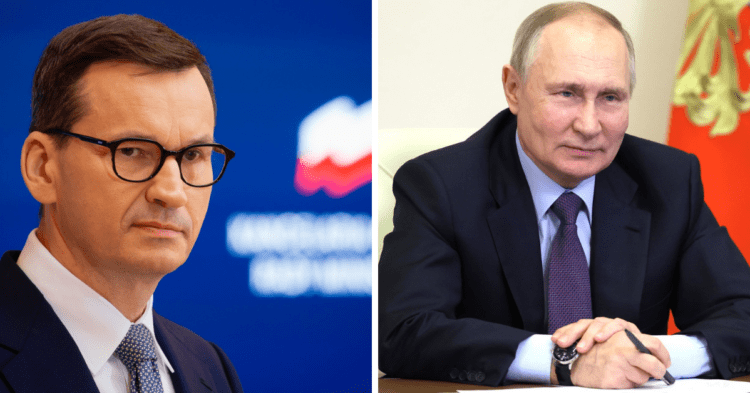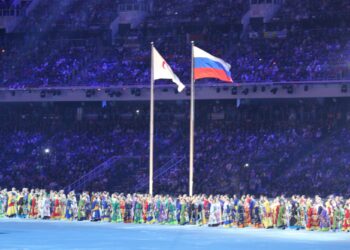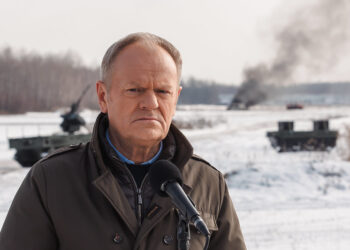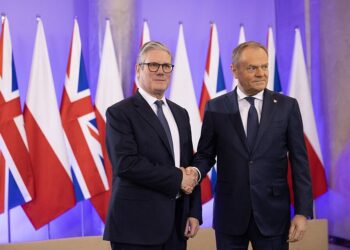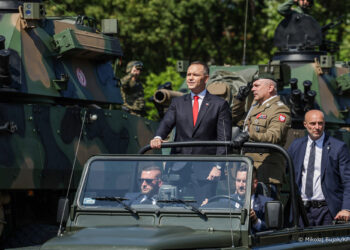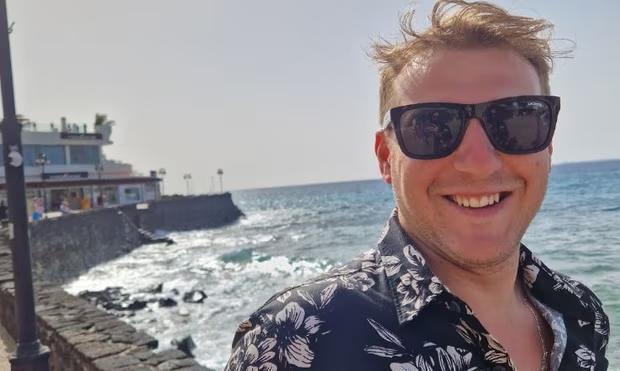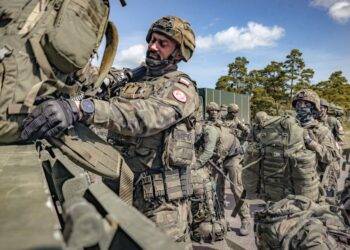In a recent speech, Russian President Vladimir Putin made a provocative statement, claiming that the western part of Poland was a gift from Stalin. “Our friends in Warsaw forgot about it, we’ll remind them.” – said Putin. This remark has sparked a strong response from Polish Prime Minister Mateusz Morawiecki, who condemned Stalin as a war criminal responsible for the deaths of hundreds of thousands of Poles. The exchange between the two leaders has reignited historical tensions and raised questions about Poland’s relationship with Russia.
During his speech, Putin asserted that the western territories of present-day Poland were a gift from Stalin to the Polish people. He accused Poland of forgetting this fact and suggested that the country may seek to join the conflict in Ukraine at the behest of Western powers. Putin also cautioned Poland against trusting Western assurances of security, reminding them of the tragedies that befell the nation in the past, including the German invasion during World War II.
Poland’s Strong Response: Morawiecki Calls Out Stalin’s Crimes
Prime Minister Morawiecki took to Twitter to express his outrage at Putin’s statement, calling Stalin a war criminal responsible for the deaths of hundreds of thousands of Poles. He emphasized that historical truth is beyond dispute and announced that the Russian ambassador would be summoned to the Ministry of Foreign Affairs as a result of Putin’s remarks.
To understand the significance of Putin’s claim and Morawiecki’s response, it is crucial to examine the historical context. Poland has endured immense suffering throughout its history, particularly during the 20th century. The country was caught between two totalitarian powers, Nazi Germany and the Soviet Union, which signed a non-aggression pact known as the Molotov-Ribbentrop Pact in 1939.
The Molotov-Ribbentrop Pact divided Eastern Europe into spheres of influence, leaving Poland vulnerable to invasion. In September 1939, Germany launched an aggression against Poland from the west, while the Soviet Union invaded from the east. As a result, Poland was occupied and subjected to brutalities committed by both Nazi and Soviet forces.
The Soviet Role: Poland’s Territory Shifts
When discussing the territorial changes in Poland during and after World War II, it is important to acknowledge the role played by the Soviet Union and its leader, Joseph Stalin. The Yalta Conference in 1945 solidified Soviet control over Eastern Europe, including Poland. Stalin’s aim was to establish a “buffer zone” of satellite states to protect the Soviet Union from potential aggression.
Under Stalin’s influence, Poland’s borders shifted significantly to the west. The pre-war Polish territories, which had been under German control during the war, were incorporated into the new Polish borders. These territories included parts of East Prussia, Silesia, and Pomerania. The population of these regions underwent significant demographic changes, with Germans expelled and Poles resettled.
Poland’s Perspective: A Complex Relationship
Poland’s relationship with Russia has always been complex, marked by a long history of conflicts and territorial disputes. The scars of World War II and the subsequent Soviet domination still resonate in the Polish collective memory. The Katyn Massacre, where thousands of Polish officers were executed by the Soviet NKVD in 1940, remains a painful reminder of the atrocities committed by Stalin’s regime.
The collapse of the Soviet Union in 1991 brought hopes of improved relations between Poland and Russia. However, the two countries have faced recurring tensions over issues such as historical interpretations, energy security, and Russia’s actions in Ukraine. Putin’s recent statement only serves to exacerbate these existing strains and further complicate the already delicate relationship.
Putin’s assertion that the western part of Poland was a gift from Stalin has ignited a heated debate over historical truth and political narratives. While some argue that the territorial changes were a result of power dynamics and geopolitical realities, others view Putin’s words as an attempt to rewrite history and justify Soviet actions. Poland, with its painful past, vehemently rejects any narrative that downplays the suffering it endured.
Historical truth should be based on rigorous research and objective analysis, free from political biases and agendas. It is essential to remember the victims and honor their memory, ensuring that the lessons of the past are not forgotten or distorted. Only by acknowledging the complexities of history can societies move forward and build stronger relationships based on mutual understanding and respect.
The recent exchange between Putin and Morawiecki is likely to strain the already fragile relationship between Poland and Russia. The summoning of the Russian ambassador is a symbolic gesture of protest, highlighting Poland’s firm stance on historical truth and its refusal to accept revisionist narratives. It remains to be seen how this controversy will impact bilateral relations, regional dynamics, and the broader geopolitical landscape.
Poland, as a member of the European Union and NATO, has sought to strengthen its ties with Western partners while balancing its historical and geographical proximity to Russia. The country’s commitment to its allies, its democratic values, and its pursuit of security and stability in the region will continue to shape its foreign policy approach. Poland is also one of three, amongst the US and the UK, biggest supporters of Ukraine in terms of a value of given military equipment.

